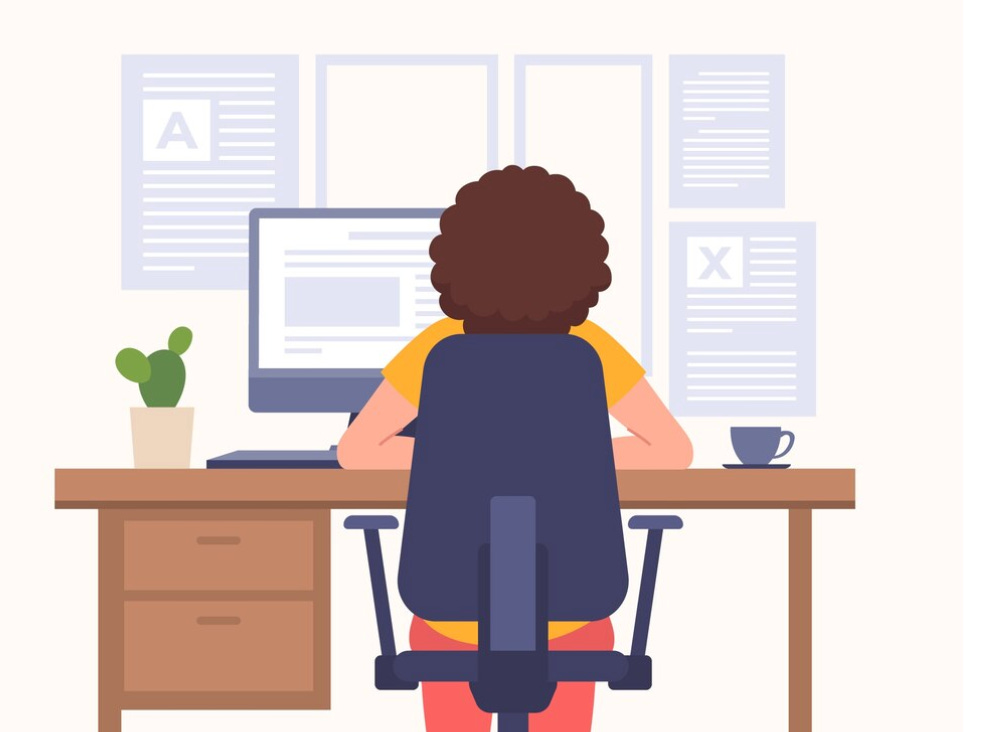Strategies for Excelling in Your Product Manager Interview
Hi there!
Are you a Product Manager preparing for an interview and feeling unsure about the process and how product interviews are typically structured?
Or perhaps you're an aspiring or experienced PM seeking to improve your understanding of the interview process?
If so, this article is specifically for you. My aim is to provide you with comprehensive insights into the interview process and equip you with the knowledge to navigate it successfully.
Let's get started!
To provide clarity, the strategies provided would be spread across these three stages:
Pre-interview stage
The Interview stage
Post-interview stage
A. THE PRE- INTERVIEW STAGE
To have gotten to this stage, that means these 3 things must have happened
You filled/submitted an application/got a referral
Your application was screened at an initial screening process where recruiters or hiring managers reviewed your qualifications against the job requirements.
Some or most of their requirements match and you’ve been invited for an interview
What this means:
Being invited to interview indicates that the employer sees potential in your candidacy and is interested in learning more about your qualifications, experiences, and suitability for the role. So, the Pre- interview stage is the time you have to figuratively kill it.
Here are 5 strategies to ace in this stage:
Understand the company and product(s).
Analyse the role and responsibilities.
Practice for the Interview.
Review Your Resume and Portfolio.
Research the Interviewers.
1. Understand the Company and Product(s):
Research the Company: Begin by researching into the company's background, mission, values, and culture. This exploration provides valuable insights into the organization's identity and objectives. Use resources such as the company website, social media platforms, and press releases to gather relevant information.
Familiarize Yourself with Product(s): Conduct through research into the company's product(s) or service(s) to gain a comprehensive understanding. Explore their features, functionalities, and unique selling points. Additionally, assess the target market and recent developments to grasp the company's market position and challenges effectively.
Download Apps and Analyze Competition: Take your research a step further by downloading the company's app(s) if they have any and those of its competitors. This hands-on approach allows for a 360-degree view of the market. By experiencing firsthand the functionalities and user experience of these products, you gain valuable insights into their strengths and weaknesses.
2. Analyse the Role and Responsibilities:
Review the Job Description: Start by examining the job description to understand the role's requirements, expectations and responsibilities. This evaluation provides clarity on what the employer is looking in a candidate.
Identify Core Competencies and Skills: Identify the key competencies, skills, and qualifications outlined in the job description. Assess how your background and experiences align with these requirements, highlighting areas where you excel and areas for potential development.
3. Practice for the Interview:
Anticipate Questions: Practice answering different types of interview questions, including behavioral, technical and general questions.
Use the STAR Method: Practice how to structure your responses to behavioral questions using the STAR method (Situation, Task, Action, Result) and provide specific examples from your past experiences.
Conduct Mock Interviews: Simulate real interview scenarios with friends, family, or mentors to receive constructive feedback on your performance.
Review Technical Knowledge: Brush up on technical concepts relevant to product management, such as data analysis, UX/UI design, APIs, Databases and technical tools.
Here are some questions to help you prepare: Check out The PM Interview, Get Hired PM Interview questions and answers by Nnamdi Azodo,and Product School Questions.
4. Review Your Resume and Portfolio:
Keep It Updated: Ensure your resume and portfolio accurately reflects your skills, experiences and achievements relevant to the position you're applying for, including any recent updates or changes.
Be Familiar: Know your resume and portfolio inside out, as they will likely be referenced during the interview. Be prepared to provide detailed and convincing answers based on any questions asked about your experiences.
Quantify Results: Practise articulating your experiences and accomplishments in a concise and confident manner, emphasising quantifiable results and impacts whenever possible. This helps demonstrate your contributions and value to potential employers.
5. Research the Interviewers:
Use LinkedIn: Utilize professional networking platforms like LinkedIn to delve deeper into the interviewer's career trajectory, connections, and professional affiliations to gain a better understanding of who you'll be meeting with.. This additional information can provide valuable context and help you prepare more effectively.
Tailor Your Responses: Use insights from your research to customize your responses and establish rapport during the interview. Understanding the interviewer's professional background, interests, and communication style can help you connect more effectively.
B. THE INTERVIEW STAGE
To prepare for this stage effectively, three crucial aspects must be considered before you take the interview.
Understanding the type of interview you’re prepping for.
Conducting yourself during the interview- dos and don'ts
Questions to ask the interviewer
1. Understanding the type of interview you’re prepping for.
Understanding the type of product manager interview you're preparing for is key for effective preparation. Tailoring your preparation to match the specific requirements and expectations of the interview format allows you present yourself confidently and efficiently during the interview process.
Let’s discuss briefly the types of Interviews you’ll most likely come across
a. General "Product Sense" Interviews:
Goal: To assess whether the candidate thinks like a product manager and has a strong opinion about products.
Sample Question: "What's your favorite product and why?"
Resource: Video by Dr. Nancy Lee on how to answer this question.
b. Behavioural Interviews:
Goal: To evaluate past experiences and behaviors to gauge how the candidate has handled specific situations in the workplace.
Sample Question: "Tell me about a time when you had to deal with a challenging stakeholder."
Resource: Video of a mock behavioural interview you can learn from
c. Product Case Interviews:
Goal: To test problem-solving skills, analytical thinking, and ability to propose solutions to hypothetical business problems.
Sample Question: “We’re finding that X number of users don’t make it through the entire onboarding process. What would you do/design to fix that?"
Resource: Video on how to crack product case interviews by Dr. Nancy.
Note: this may come in the form of a take home assignment you’ll get to present to the Interviewer.
d. Technical Interviews:
Goal: To assess knowledge of relevant technologies, tools, or methodologies related to product management.
Sample Question: "Can you explain the architecture of a past product your team built?”
Resource: Here’s a video on how to ace technical interviews by Dianna Yau.
e. Cultural Fit Interviews:
Goal: To ensure the candidate will be a good fit for the company's culture and values. It’s usually with the Human Resource Manager.
Sample Question: "How do you approach teamwork and collaboration?"
Note:
It's important to note that not all companies conduct every type of interview, and sometimes, multiple types of interviews may be combined into one.
Therefore, it's crucial to clarify the specific type of interview you'll be facing to enable you to prepare appropriately.
2. Conducting yourself during the interview- dos and don'ts
Do(s)..
Remind yourself that the interview will be a conversation, not an interrogation. The fact that you've been offered an interview suggests they see you as a possible employee.
Arrive 10 - 15 minutes early. Late attendance is never acceptable and makes you appear unprepared.
Give a concise and engaging introduction that highlights your relevant experiences, skills, and enthusiasm for the product management role. This is usually answered with the “tell me about yourself” question. Watch this on how to ace it.
Prepare to give relevant examples from your previous experiences that demonstrate your product management skills, achievements, and problem-solving talents.
During the interview, be sure to clearly communicate your ideas, views, and strategies.
Maintain a positive attitude. Smile, make eye contact, nod occasionally to show understanding/agreement, don't slouch, and keep your cool.
If you are unsure about anything throughout the interview, ask clarifying questions.
Don’t(s)
Interrupt the interviewer.
Answer vague questions. kindly ask the interviewer for clarification and then respond.
Ramble. Long answers can sound apologetic, indecisive, or unfocused in your thinking.
Also, avoid answering questions with a laconic “yes” or “no.” Support your answers with brief, specific anecdotes from your employment history.
3. Questions you can ask the interviewer-
Prepare 2-3 insightful questions to ask the interviewer(s) during the interview to demonstrate your interest in the role and company.
Inquire about the company's culture, team dynamics, and growth opportunities to assess the organisation's fit with your career goals.
Ask about the day-to-day responsibilities of the role, performance expectations, and potential challenges to gain a comprehensive understanding of the position.
Avoid asking questions that can be easily answered through basic research; instead, focus on topics that showcase your curiosity, critical thinking, and genuine interest in the opportunity.
Optionally, you may request feedback from the interviewer on your performance. While positive feedback can leave a lasting impression, negative feedback may linger in the interviewer's mind. Therefore, you may choose to forgo this option if you don't feel confident about your performance.
C. POST INTERVIEW STAGE
After the interview concludes, use these two strategies;
Send a Thank-You Note
Reflect on your Performance:
Sending Thank-You Notes:
Send a thank-you note or email to express your gratitude to the interviewer(s) for the opportunity to interview for the position.
Personalize your message by referencing specific aspects of the interview or conversations that resonated with you, and express appreciation for their time and consideration.
Emphasize key reasons why you believe you are a strong fit for the role and how your skills and experiences align with the company's needs and goals
Reflecting on your Performance:
Acknowledge any weaknesses or areas for improvement, such as difficulty in answering certain questions, lack of clarity in your responses, or areas where you may need further development.
Use the interview experience as an opportunity for growth and learning by identifying specific areas where you can improve your performance in future interviews.
Here’s a quick recap of all we’ve talked about
In Conclusion….
Thorough preparation is key to success in product manager interviews. By understanding the strategies involved in each stage of preparation, you can improve your chances of impressing interviewers and securing your desired role.
It's essential to see the interview process as a valuable learning opportunity, where each interaction provides insights for growth and contributes to your development as a product manager.






